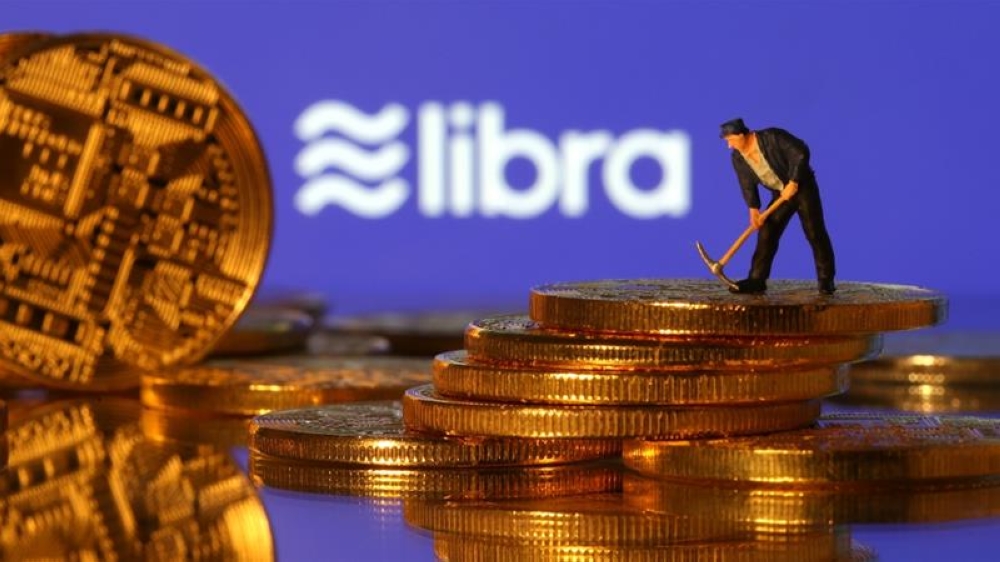
The muted conversations surrounding the controversial subject of cryptocurrencies amplified to a crescendo in June 2019, after an alliance led by Facebook announced that it was planning to launch Libra, its own cryptocurrency.
Central banks across the world quickly realized that they are set to lose ground to Facebook and its allies who are entering the cryptocurrency realm. Not only because the social media giant has become the largest platform for humankind in history with over 2.4 billion active users, but also because the 28 member alliance includes leading financial institutions that are pioneers in financial services and fintech, such as Mastercard, PayPal, and Uber Technologies.
What this means for our tech-centric world is that we are about to witness the launch of one of the most traded currencies of our time - if Facebook and its allies are successful in convincing billions of users to convert a portion of their savings to Libra, which will ultimately give this alliance, an unprecedented power that no central bank has enjoyed to date.
In a departure from the norm, besides cautioning customers on cryptocurrencies, this time around central banks are highlighting warnings by finance ministers of the seven largest industrial countries who have criticized plans to launch Libra and asked Facebook and its alliance to respect regulations regarding money laundering, as well as ensure the security of deals and users’ data.
World leaders including US President Donald Trump sharply censured the plans and called on Facebook to subject itself to American and international regulations if it is looking to become a bank. President Trump also expressed his doubts about cryptocurrencies in general, which he said are ‘based on thin air’.
Despite the lack of information that can help us assess the potential success of Libra and other digital currencies in providing a secure alternative to their traditional counterparts, especially in light of the volatile prices of current cryptocurrencies such as Bitcoin, the plan by the Facebook alliance to launch a new currency appears different in terms of its goals.
We can also allow ourselves to feel a degree of optimism at this new breakthrough in fintech and financial inclusion, because having a global digital currency like Libra will make money transfer as easy as sending messages. The new cryptocurrency is set to easily overcome administrative complications, the need for fees and levies, as well as delays and hurdles that make it difficult to transfer money. Through enabling the inclusion of people in less developed countries into the global financial system, it will lead to a new wave of innovation in financing similar to the internet revolution that has allowed people to work remotely and offer online services.
However, we must be cautious about the potential risks associated with cryptocurrencies. In addition to their potential use for criminal purposes in the absence of supervisory entities, Facebook has increasingly gained notoriety for the user data leak issue. Millions of its users continue to voice doubts about the ability of Facebook and its allies to issue a safe and hack-proof digital currency. To override these concerns, the alliance has announced that it will establish an association based in Geneva to pave the way for its ambitious project before launching the first Libra units as well as managing financial reserves. Besides the founders, the association is expected to eventually include a total of 100 members with equal voting rights.
We are about to see the launch of a giant project that is set to alter the current financial landscape and ultimately, the world at large. There is today, a genuine demand for such currencies as they bridge a gap that has not been addressed by traditional financial instruments. Such cryptocurrencies align with developments in blockchain technology that has already ushered in a new era in the financial technology space.
The controversies pertaining to their launch will not stop the digital currency wave. Central banks around the world need to contain and deal with this new technological breakthrough instead of resisting it and sending out warnings against its risks. For the benefit of all stakeholders, central banks and governments would do well to lead this transformation or at least supervise this journey under new rules that comply with our digital future.
It is encouraging to know that the UAE and Saudi Arabia have joined forces to launch a special digital currency that will increase transactional efficiencies between the two countries. This is an excellent start for our region, and we will hopefully see other countries in the GCC follow suit.